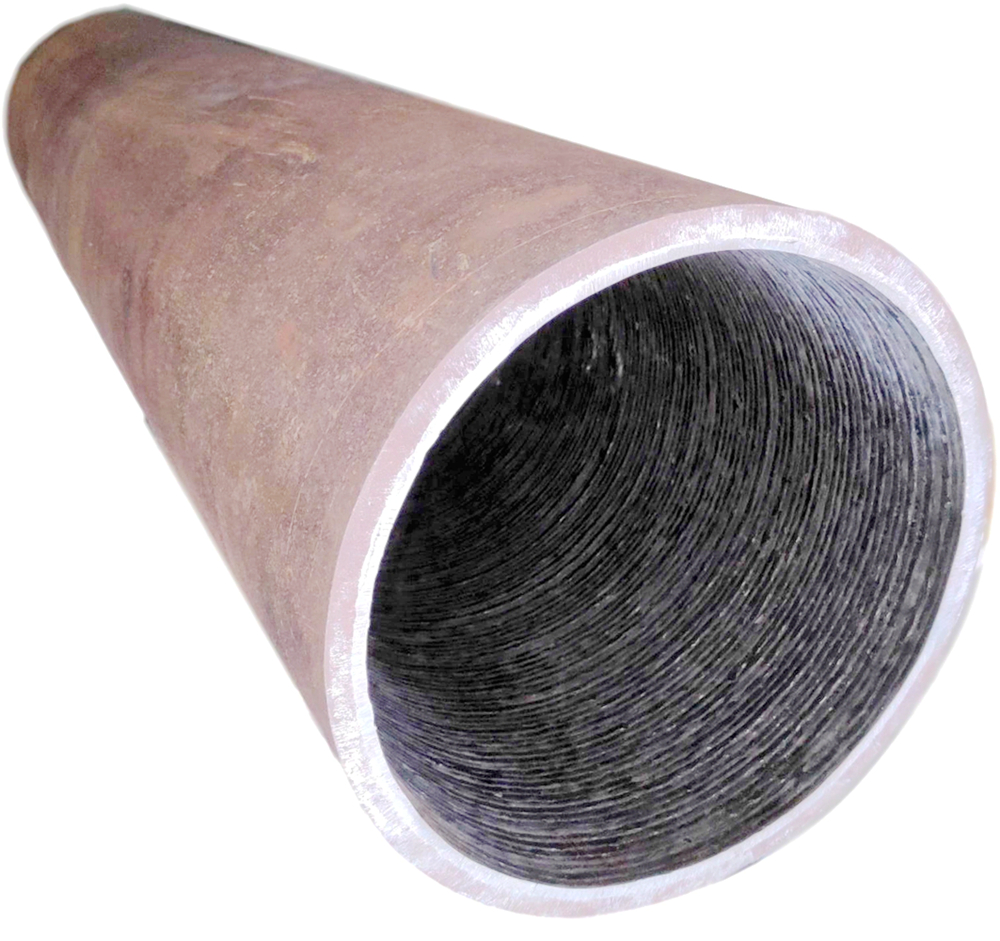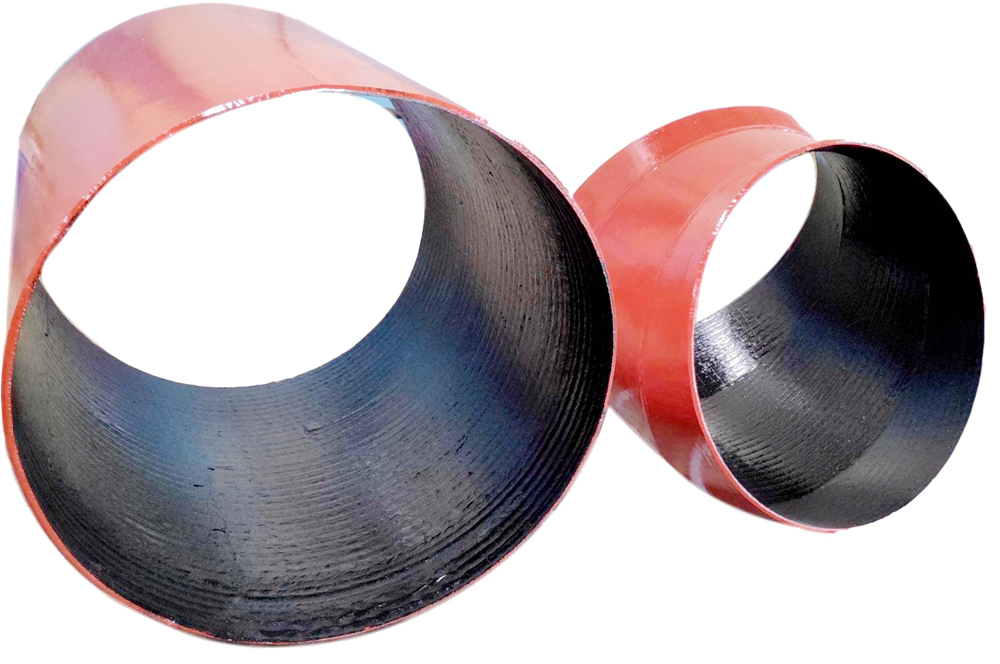Hardfacing Pipe is produced through an oscillating table with a welding head to arc weld the chromium carbide into the inside of the pipe. We can handle diameters from 6" to 24" and then we manufacture pipes from our chrome-plated sheets. The cover layer is deposited perpendicular to the material flow through the pipe, resulting in a longer wear life
Typical materials for cladding in common use at HP Welding include HP700, HP700S, HP750X, HP750P and stainless steels, as well as many less common alloys.
With over 30 years of experience on the production of hardfacing products, and the technical expertise to back them up, HP Welding can meet any base material and cladding combination.
The advantages of HP Hardfacing Pipe
1. Flat surface and nice appearance
2. Good weldability to others working pieces
3. Excellent wear resistance
HP Hardfacing Pipe can be widely applied to mining site, cement plant, metallurgical equipment, dredging and power generation and any other fields where need to combat with abrasion.


Alloy Steel Pipe,Hardfacing Iron Pipe,Chrome Alloy Hardfacing Super Wear Resistance Pipe
HuiFeng Wear Resistant Group , https://www.hpwearsolution.com